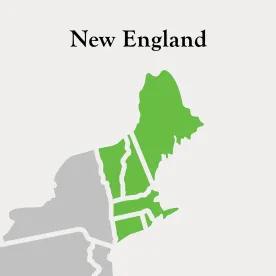Maine's Supreme Judicial Court has held that a 2021 referendum that may have killed the New England Clean Energy Connect project may also have violated the project's "vested rights" in violation of the Maine Constitution.
A unanimous court held that one's "vested rights are violated when they undertake substantial good faith expenditures on activity [in this case the construction of a transmission line through the State of Maine] within the scope of the affected permit [in this case a certificate of public need and necessity from the Maine Pubic Utilities Commission] prior to the enactment of the retroactive legislation [in this case the 2021 referendum], meaning the expenditure was made (1) in reliance on the affected permit or grant of authority, (2) before the law changed, and (3) according to a schedule that was not created or expedited for the purpose of generating a vested rights claim."
The court has remanded the matter back to the trial court for a determination of whether the approximately $450 million spent on the project before the referendum, including to clear 124 miles of right of way, erect transmission structures, and prepare a converter station site, constitute such a "good faith" expenditure.
Even if the answer to that question is "yes", and it has to be, it only means that the voters can't retroactively prohibit the project.
That brings me to the most concerning part of the Court's decision: the five page recounting of the myriad of federal, state and local permits this project requires, not all of which the project yet has, and the several state and federal lawsuits that have already ensued over those permits.
The bottom line is that this project, which is essential for Massachusetts to meet its green house gas reduction goals, is not nearly out of the woods. And we're very unlikely to succeed in our fight against greenhouse gas fueled climate change if we don't do something about addressing the impediments to the transition to clean energy necessary to win that fight whether it be the construction of wind farms or building the grid necessary to get renewable energy to where it is needed.
https://www.statehousenews.com/content/docs/2022/08-30_Maine_SJC_NECEC_Referendum_Ruling.pdf




 />i
/>i
